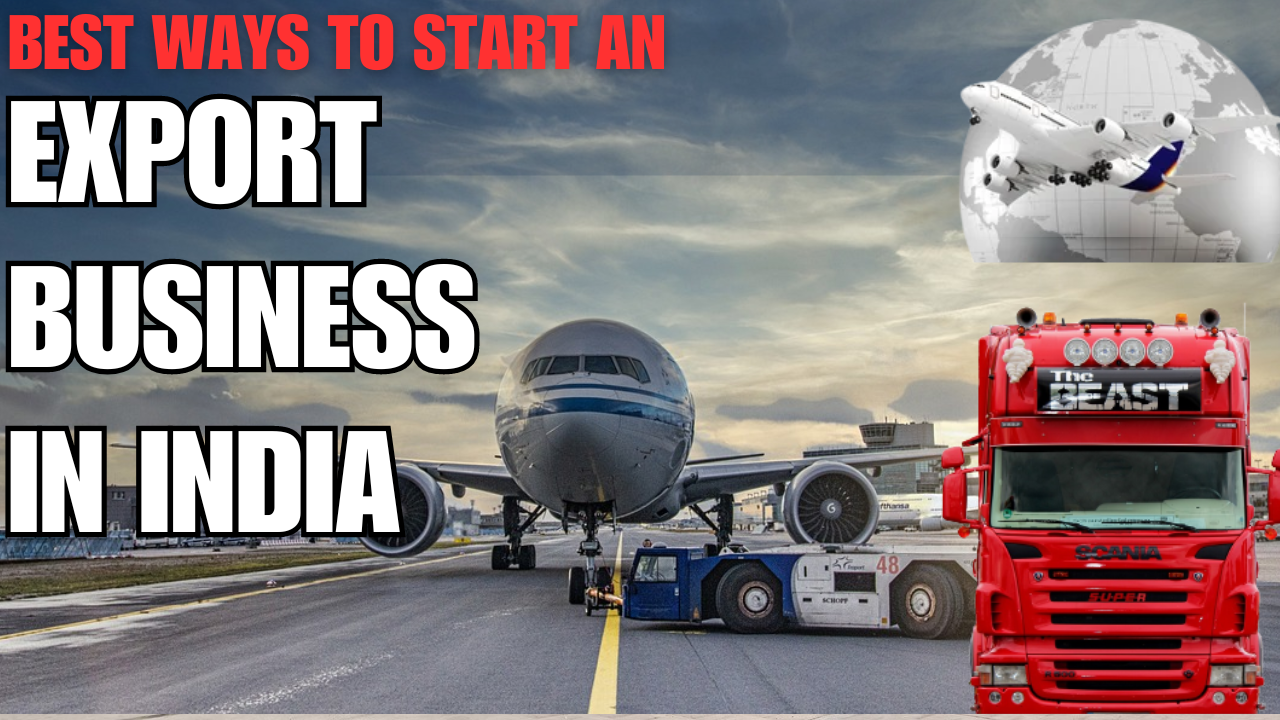
What is the Best Way to Start an Export Business in India?
India is a land of opportunities. The nation is wealthy in assets and has huge potential for development. With the right moves, India can be a significant player in the global market. The import-export send out business is perhaps the most worthwhile business in India. The industry offers excellent opportunities for those looking to start their own business. However, creating an import-export business takes work. Starting a business requires several steps.This blog post discusses starting an Indian import-export business. We will also discuss how to succeed in business.
.
Why is India an important country for Import-Import-Export Business?
India is a decent country for import-trade business because of multiple factors:
India’s enormous populace makes a major market for labour and products.
India has a different economy, with numerous areas offering business valuable chances to exchange.
India has a positive business climate, with a strong government and framework.
India is decisively situated, with simple admittance to Asia, Africa, and the Center East business sectors.
How to Start an Import-Export Business?
Planning Your Export Business
Before you dive into the world of export, it’s essential to have a solid business plan and a clear course of action. For those venturing into the export business, here are some key aspects to consider:
Product or Service Selection: Start by deciding what product or service you want to export. What will be your export offering, and how will it meet the needs of your target market?
Sourcing Raw Materials: If you’re manufacturing a product, you need to figure out where and how you’ll source the raw materials. For service-based businesses, think about how you’ll deliver your service to customers.
Cost Analysis: Calculate the input costs involved in your export business. This includes everything from production expenses to shipping and distribution costs.
Working Capital: Determine the working capital needed to keep your business running smoothly. You’ll need enough funds to cover day-to-day operations.
Long-term Capital: Consider your long-term financial requirements. Will you need a loan or investors to support your business growth?
Legal Requirements: Find out what licences or registrations are necessary for exporting. Ensuring you meet all legal obligations is crucial.
Market Research: Study the market you plan to enter. Understand the demand, competition, and customer preferences in your target market.
Customer Analysis: Get to know your potential customers. What are their needs, preferences, and buying behaviours?
Transportation and Logistics: Plan how you’ll move your products or deliver your services to your international customers. Consider the logistics involved in the export process.
Get a PAN Card
Starting a new export business involves a specific set of essential documents, and the first among these is the PAN Card. To begin, you and your partner(s) must possess valid identity and address proofs for registering your business.
Obtaining a PAN Card (Permanent Account Number) from the Income Tax Department is a mandatory requirement for all registered business entities. The process of applying for a PAN for a business entity closely resembles the procedure for acquiring a personal PAN, which we will explore in more detail in this guide.
Open Current Bank Account
A Current Account, specifically designed for business entities, is a necessity for your new import-export business. This account serves as the hub for all your financial transactions with customers and vendors. The documentation needed to open a current account may vary based on your business entity type.
Overlook the Importance of the IEC Code!
If you’re entering the import-export business, obtaining an Importer-Exporter Code (IEC) is a must. This code application, submitted to the Director General of Foreign Trade, will require various supporting documents.
Selecting the Right Export Product
Choosing the right product is a pivotal decision in your import-export business strategy. It involves considering factors such as global market conditions, regulatory requirements, export trends, and more. For detailed insights and a helpful guide to steer you in the right direction, explore our comprehensive resource on selecting the ideal export product.
The Significance of Your Registration Cum Membership Certificate (RCMC)
India features multiple export promotion councils, each dedicated to promoting exports in distinct product and service sectors. Registering with these councils not only grants access to industry events and business expansion support but is also essential for availing certain benefits under India’s Foreign Trade Policy. The RCMC plays a vital role in your registration with these councils. This certificate holds nationwide validity and typically takes around a week to complete the registration process. As an example, if you’re involved in exporting agricultural or processed food products, you can register with APEDA, which offers an online registration facility through its website.
Choosing the Ideal Export Market
One of the critical steps in the export process is pinpointing the perfect market for your product or service. New exporters need to consider various factors, including demand for the product, trade barriers, potential profitability, the political environment, and more. It’s crucial to assess the feasibility of each potential market thoroughly before making a decision. Your export success largely depends on making the right choice.






